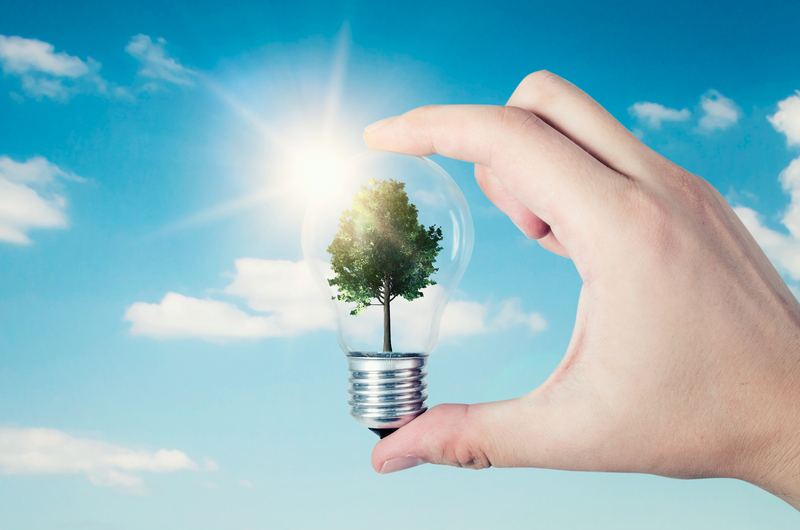This article is your guide to understanding why it is important to conserve energy. Conserving energy is important to save you on your next electric bill and also help protect the Earth’s natural resources. There are many other reasons to practice energy conservation, so keep reading to learn why!
The Energy Professor Electricity Rate Check Tool
Why is Energy Conservation Important?

Energy conservation is important for many reasons, but mostly for saving money and for having a lower impact on the planet. Since energy costs continue to rise, homeowners are looking ways to curb costs and conserving your energy can be one of the best ways to do so. Climate change is also happening at a rapid pace, and choosing to live more consciously, or green, can help slow the effects that might come with that.
What are the top benefits of energy conservation?
- Saving on your electric bill
- Reducing your carbon footprint
- Protecting Earth’s natural resources
#1 Conserving Energy Benefit – Cheaper Electric Bill
Conserving energy can have a significant impact on your electric bill by reducing your overall energy usage. By implementing simple habits like turning off lights when you leave a room, unplugging electronics when they’re not in use, and using energy-efficient appliances, you can lower your monthly energy costs. Additionally, investing in energy-efficient upgrades like LED light bulbs, energy-efficient appliances, and programmable thermostats can help reduce your energy usage and save you money over the long term, even if these upgrades require an initial investment. Some energy providers also offer lower rates during off-peak hours, so conserving energy during these times can help you avoid higher rates and further reduce your monthly electric bill.
#2 – Energy Conserving Benefit – Reducing your carbon footprint
#3 Conserving Power Benefit – Protecting Earth’s Natural Resources
What is Energy Conservation?
Energy conservation is the conscious effort to reduce overall energy usage—an act that holds profound implications for both your wallet and the environment. In essence, it means using less electricity in your daily life, a commitment that may seem daunting but is remarkably simple. Small adjustments, like shortening your shower time or switching to LED bulbs, can make a significant impact.
Every action, such as turning off lights when not in use, plays a part in slowing the depletion of fossil fuels and curbing carbon emissions, creating a win-win scenario of saving money and preserving the planet for future generations. These changes not only benefit your finances but contribute to a cleaner, greener world.
Related post: Complete Guide to the Best Electricity Saving Devices for Homes
How Will Energy Conservation Save You Money?

In its simplest form, less energy usage equals more savings on your electricity bill. Energy comes with a price tag, and each time a light flickers on or the oven warms up, money is spent. By adopting a more conscious approach to your electricity consumption, you can significantly reduce your monthly bill. Energy conservation isn’t just an environmentally friendly choice; it’s a pocket-friendly one too.
Small changes in your daily routines, such as doing laundry during off-peak hours, can translate into noticeable savings. Take, for instance, the straightforward act of turning off lights when not needed—a basic yet impactful example of energy conservation that puts dollars back in your pocket.
As a responsible consumer, your efforts not only establish cost-effective habits but also contribute to the larger goal of reducing your carbon footprint. So, when the question arises, “Why save electricity?” the answer is twofold: you’re safeguarding your finances while simultaneously playing a role in preserving the planet. Embrace the simplicity of energy conservation, where every mindful action echoes in both your wallet and the well-being of our shared home.
Related post: How Much Electricity Does a Space Heater Use?
Do you Need Cheaper Electricity?
If you’ve taken the time to understand the information on your bill and discovered you’re paying more than you’d like for your electricity, have you looked around for a cheaper deal? The Energy Professor has a wealth of information on ways to save on your utilities, including details of top deals that could significantly reduce your monthly or quarterly electricity bills.
We hope you found this article helpful! If you are looking for ways to increase energy efficiency and sustainability in your home be sure to take a look at all of the latest renewable energy options in your area. The Energy Professor helps residential and small business owners find qualified energy suppliers in New York, New Jersey, Pennsylvania, Texas, Ohio, Maryland, Illinois, and Massachusetts.


